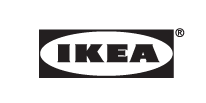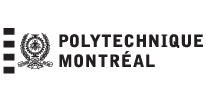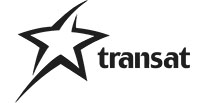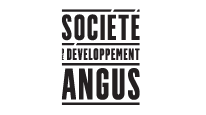Find out what companies in the “Employers take action for mobility” project have to say about their experience either as a participating company or mentor.
Participating companies

“As a socially responsible company, Aéroports de Montréal wants to limit the impact of its activities on the environment. Introducing this initiative, the goal of which is to reduce solo car use and promote public transit, is part of our commitment to sustainable development.”
Joanne Bergeron, Vice President, Sustainable Development, Aéroports de Montréal

“Nexus 40-13 is taking part in the “Employers take action for sustainable mobility” project to review its transportation offer and decide how it can better adapt to the needs of current and future tenants. By promoting alternative modes of transportation and helping reduce greenhouse gas, this project fits with Canderel’s sustainability policy.
The project is meant to ensure better public transit services are in place and to inform Nexus 40-13 employees and its Montréal partners of the transportation options available. New transportation services could be added to the Nexus 40-13 international business centre soon.”
Bradley Birks, Director of Leasing, Nexus 40-13

“IKEA’s vision is to improve the lives of Canadians. IKEA Montréal wants to take action and explore new means of sustainable transportation for getting to the store. This will help reduce emissions and our carbon footprint. Every action counts, whether big or small. Working together is the only way we can have a positive impact on the environment, for the well-being of our partners and our community.”
Alain Cloutier, Store Manager, IKEA Montréal

“Every day, almost 10,000 people descend on Polytechnique Montréal, on the north face of Mont Royal. Reducing solo car use in this stream of traffic is an important goal in our sustainability efforts. It’s a way to protect our living environment, reduce our impact and introduce healthy habits in our community.”
Christophe Guy, CEO, Polytechnique Montréal

“The Fonds de solidarité FTQ is pursuing its commitment to the environment by encouraging sustainable transportation. It wants to reduce solo car use, promote public transit and limit the demand for parking to reduce its environmental footprint.”
Mario Tremblay, Vice-President, Public and Corporate Affairs, Fonds de solidarité FTQ

“Veolia’s mission is “Resourcing the World.” So it is a natural fit for it to take part in this pilot project with the Chamber of Commerce of Metropolitan Montreal and the Ville de Montréal. Our number of partners has grown substantially in downtown Montréal, so we need to offer them alternatives to traditional travel. Veolia is creating greater comfort for its partners and more broadly Quebecers, who benefit from reduced traffic and pollution. This effort is in line with our president’s intention to offer solutions that have a positive impact on the environment, people’s well-being and economic prosperity.”
Philippe Blain, Vice-President, Veolia

“With a community of some 60,000 people, it is hard not to see ourselves as a major generator of travel and an economic driver for Montréal. Now more than ever, we want to improve access to our campuses as we fight against climate change. And of course, this involves primarily low-carbon mobility that does not rely on solo car use.“
Stéphane Béranger, Sustainable Development Coordinator, Université de Montréal

“With three metro stations – including Berri-UQAM – serving our sprawling campus, UQAM is at the heart of the city’s public transit network. Close to 75% of our students use it regularly. This level of usage shows the importance of sustainable mobility to members of our community. By taking part in the “Employers take action for sustainable mobility” pilot project, UQAM is taking a further step and is committing to promote active transportation, which keeps growing in popularity, particularly within our community. The future of sustainable mobility at UQAM and in Montréal definitely involves active transportation, and our university is proud to be part of this movement.“
Robert Proulx, Rector, UQAM

Public transit and active transportation are without doubt key approaches to reducing traffic congestion and improving the flow of people and goods in Montreal. Hatch is committed to making positive changes in this area and to exploring and developing new environmentally friendly and sustainable transportation systems.
In 2011, we decided to keep our offices in downtown Montreal at Place Ville Marie, which is strategically linked to all public transit networks. Today, our sustainable mobility plan includes new actions that can adapt to evolving mobility tools and to the reality of how our employees get around and get to work.
Nicolas Théberge, Regional Director, Infrastructure

At Transat, we make efforts to minimize the environmental impacts of our operations, and we encourage our employees to do the same. In Quebec, just over 30% of them participate in our sustainable transportation program launched in 2010. This program promotes active transportation and provides savings on public transit fares through Opus & Cie and Opus+ entreprise, of which we are proud ambassadors. We are also continuing our efforts to develop new alternatives to solo driving. For example, all of our Quebec offices have a secure place for employees to park their bikes. And at our Air Transat offices located near the airport, the parking lot has free electric-vehicle charging stations and nearly 15% of parking spaces reserved for low-emission and ride-share vehicles. Transat also participates in annual events that promote sustainable mobility, such as the Défi sans auto solo corporate challenge to encourage alternatives to solo driving, for which our staff’s extensive participation has repeatedly earned us first place in the large Montréal companies category.
Christophe Hennebelle, Vice-President, Human Resources and Corporate Affairs
Mentor companies

“At Desjardins, our Alternative Transportation Program is part of both our strategy for attracting and retaining employees and our efforts to fight climate change. Our 7,000 employees truly appreciate the program’s measures; they are more motivated and mobilized. We reap the daily benefits of this as an employer and a community.”
Pauline D’Amboise, Secretary General and Vice-President of Governance and Sustainable Development, Desjardins Group

“To increase the site’s appeal to companies and future users, the Société de développement Angus team developed an integrated public and active transportation strategy. We are the first real estate management company to introduce the Mobility Passport to encourage companies and their employees to use alternatives to solo driving to get to work. The passport includes an annual pass for STM and BIXI along with a Communauto membership. This initiative earned us the Sustainable Transportation Leadership Award in 2016. This is in addition to electric charging stations and indoor and outdoor bike racks at the site.”
Christian Yaccarini, President and CEO, Angus

“At Hydro-Québec, we are, of course, at the heart of the energy revolution and the electrification of transportation. But active transportation is also encouraged through a number of initiatives. One of the most popular is the infrastructure we have created for employees who bike to work. We have secure bike parking in most buildings in the province as well as showers and lockers. In 2016, the free bike tune-up campaign for employees who use this mode of transportation to get to work resulted in 174 bikes being tuned up during four workshops in Montréal and Québec City. For buildings not served by the program, we reimbursed 42 claims for tune-ups worth $40. We believe that encouraging active transportation contributes to the well-being of our employees and relieves pressure on the roads.”
Daniel Boudreau, Environmental Performance Advisor, Hydro-Québec

“When the head office of the Commission de la construction du Québec (CCQ) moved in 2012, it was a big change for the travel habits of employees. When building the new offices, location was an important criterion; we wanted something close to highway, public transit and active transportation infrastructures. These factors were taken into account when we received LEED certification (Gold level). The CCQ then introduced a carpooling program, working with commuter management centre MOBA. In the first few years, CCQ employees reduced solo car use by 9%, and over 20% of the outdoor parking spots are reserved for people who carpool. So in addition to mobilizing employees, the program reduced the need to rent parking and pressure on street parking in the area.”
Joël Champagne, Director of Material Resources, CCQ

“As a company operating downtown, we have access to a range of sustainable transportation solutions. Our challenge was to increase their use, both for day-to-day transportation and for business travel. This is why we created a series of measures and incentives that have been a big success.”
Mélanie Pitre, Director, Sustainable Development, Ædifica